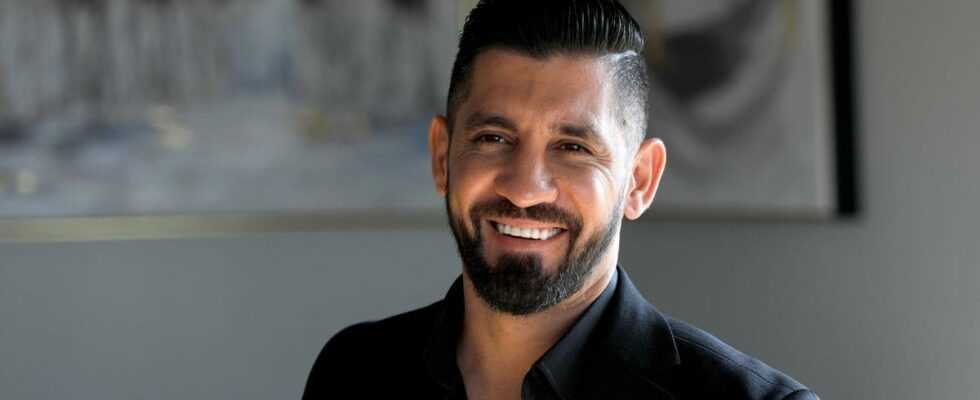the Druze Prodigy sings in Hebrew in Hebron, in Arabic in Tel-Aviv. A way for him to gather people around his music, Mizrahi pop, and contribute to peace.
“Yalla, Yalla, raise your hands!”, launches in Arabic the Israeli Druze singer Mike Sharif to the crowd of Palestinians who jiggle on one of his hits in Hebrew, of which they sing the chorus, during a wedding in the occupied West Bank. The scene, all the more unusual as it took place a few months ago in Yatta, a Palestinian village located near Hebron, in an area of frequent friction between the army, Israeli settlers and Palestinians, made the buzz on social networks and local media. “I had prepared three hours of show only in Arabic. After half an hour, everyone, the families of the bride and groom, the guests, asked me to sing in Hebrew.”he explains in Daliat al-Carmel, in northern Israel.
Read alsoIsrael and the Palestinians renew the dialogue (lefigaro.fr)
The Druze, an Arabic-speaking minority professing a faith derived from heterodox Islam, number around 140,000 in Israel and on the occupied Golan Heights. Nicknamed the Druze prodigy After winning a TV competition at the age of 12, Mike Sharif, now in his 40s, became famous with his Mizrahi (Eastern) pop songs in the 90s, in Israel, but also in the West Bank, Gaza , and in Arab countries. “I have always belonged to everyone”says the self-proclaimed “peace ambassador” between Israelis and Palestinians.
“Music can contribute to peace.»
From the beginnings of Mizrahi pop, influenced by the Jewish cultures of the Middle East and North Africa, a play of reciprocal influences was established with the music of neighboring Arab territories. Today, singers like Eyal Golan, the most popular in Israel, or Eden Ben Zaken, have fans among Palestinians. Conversely, the big names in Arabic music, Oum Kalthoum, Fairouz or Farid al-Atrache, have long been popular among Israelis.
A musical proximity which, according to Mike Sharif, should allow “to unite everyone” and contribute to ending conflicts. “I sing in Hebrew in Hebron, in Arabic in Tel Aviv. I sing in both languages and everyone sings on both sides. Music can contribute to peace. Politics does not allow people to be brought together in this way.he believes.
But his performance at Yatta was followed by criticism and even threats from both sides, with some Palestinians and Israelis calling him a “traitor”, the first for having sung in Hebrew in the West Bank, territory occupied by Israel, the second for having performed in a Palestinian wedding. And after claiming he wanted to be “the first Israeli singer to perform in the Gaza Strip”a territory under the control of the Islamist movement Hamas and prohibited from entering Israelis, he abandoned the idea “due to tension”he said, without detailing.
A “physical and emotional experience”
For Oded Erez, a specialist in popular music at Bar-Ilan University near Tel Aviv, music as a bridge between Israelis and Palestinians belongs to “oslo years», those of the early 90s following the signing of the interim agreements on autonomy in the occupied territories, when Jewish singers like Zehava Ben or Sarit Hadad performed in Arabic with songs by Oum Kalthoum in Palestinian cities.
But today, according to the musicologist, “a shared investment in a common music, a musical style, a common sound is not in itself a platform for political change or reconciliation (…) it must be explicitly mobilized at the political level”. And the musical proximity between Palestinians and Israelis is reduced to “a physical and emotional experience” and not political. The request of the Palestinian public during Mike Sharif’s performance was therefore not a request “for Hebrew as such, but for his hits from the 90s, sung in Hebrew, and entered the canons of the Palestinian wedding repertoire”, he explains. The same goes for the title The sound of gunpowder, composed in 2018 in honor of a gang leader from a refugee camp near Nablus in the West Bank, played on a loop in Arabic in Israeli weddings, adds the musicologist. “When there is music, people disconnect from all the wars, politics, differences of opinionconcludes Mike Sharif. They forget everything, they are just focused on the music”.
